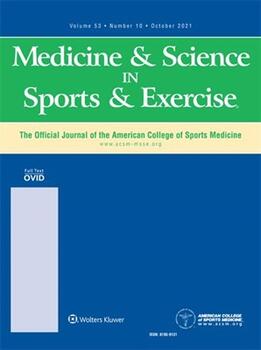Rampinini E1, Impellizzeri FM2, Castagna C3, Azzalin A1, Ferrari Bravo D1, Wisløff U4
1, Human Performance Laboratory, Mapei Sport Research Center, Castellanza, Varese, Italy;2, Neuromuscular Research Laboratory, Schulthess Clinic, Zurich, SWITZERLAND;3, School of Sport and Exercise Sciences, Faculty of Medicine and Surgery, University of Rome Tor Vergata, Rome, ITALY;4, Department of Circulation and Medical Imaging, Norwegian University of Science and Technology, Faculty of Medicine, Trondheim, NORWAY

PURPOSE: To examine whether the fatigue accumulated during match play or determined by short bouts of high-intensity intermittent activities affect short-passing ability in junior soccer players. A further aim was to examine the influence of physical fitness as measured using the Yo-Yo Intermittent Recovery Test (YYIRT) on the changes in short-passing ability after a 5-min simulation of high-intensity activities (HIS). METHODS: Sixteen players (mean +/- SD: age 17.6 +/- 0.5 yr, height 174 +/- 7 cm, body mass 68 +/- 6 kg) participated in the study. A quasi-experimental control-period design was used for the study. Short-passing ability was measured using the Loughborough Soccer Passing Test (LSPT). Players completed the LSPT in two sessions during the 1-wk control period, followed by two unofficial matches during which the LSPT was performed during and after the first and the second halves of the game. Furthermore, the change in LSPT performance was determined after 5 min of HIS. RESULTS: A decline in LSPT performance was found during and after the game (P < 0.01). The accuracy of the LSPT decreased after the HIS. A significant correlation was found between the YYIRT scores and the decline in LSPT performance (accuracy, total time, total time with penalties) after HIS (r = -0.51 to -0.65; P < 0.05). CONCLUSIONS: This study showed that the fatigue developed during a match and after relatively short bouts of high-intensity intermittent activities has a detrimental effect on short-passing ability, and that the fatigue-related decline in technical proficiency for a given intensity is associated with the fitness level of the players.
Med Sci Sports Exerc. 2008 May;40(5):934-42.
PMID: 18408603 DOI: 10.1249/MSS.0b013e3181666eb8